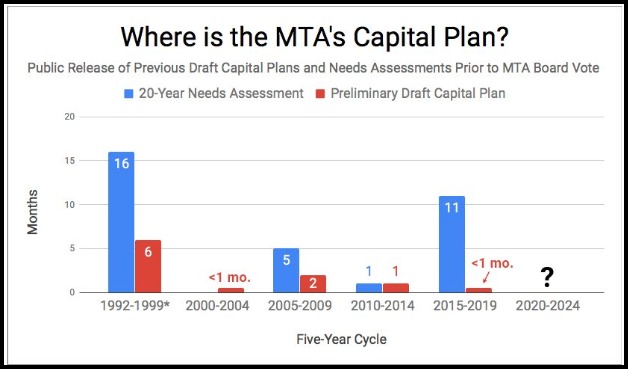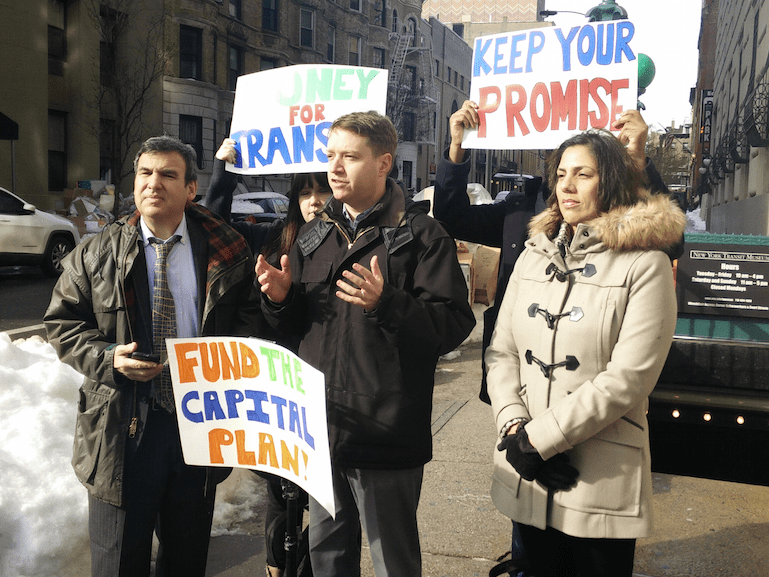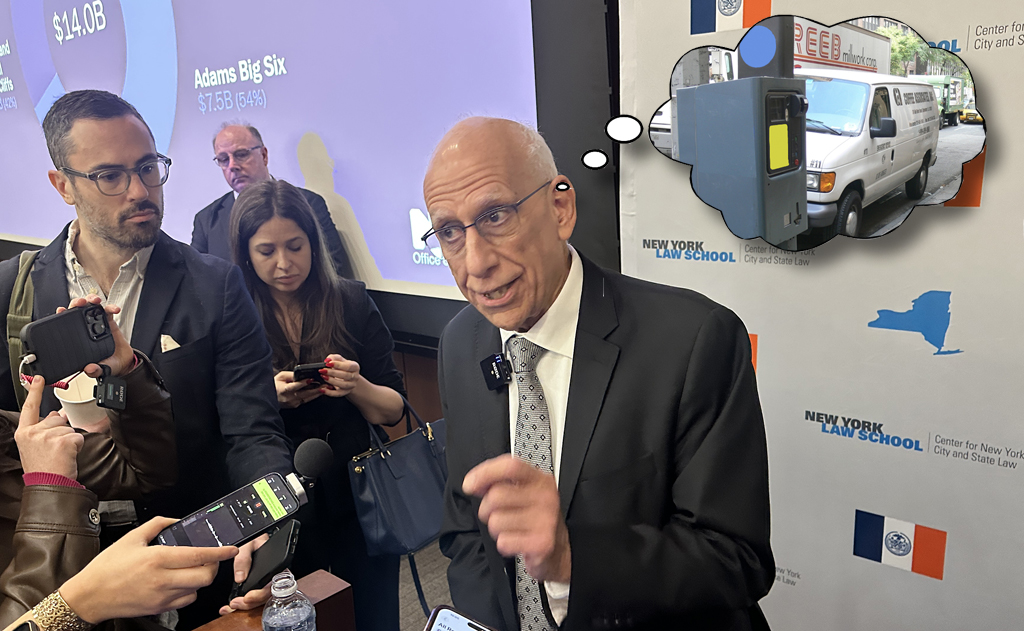Congestion pricing will soon fill the MTA bank account — but the agency is being very secretive about how it plans to spend the windfall.
The multi-county transportation authority is way behind in publicly releasing its critical 20-year needs assessment and its still-secret $50-billion capital plan, which must be approved in a public vote by Oct. 1. The good government group Reinvent Albany says in a new report that the opaque nature of MTA planning means the public is getting a process that is more rushed and more mysterious than ever.
"The issue is that the plan likely includes the commitments from congestion pricing, but the question is how political it is, and what else might be in there that represents an opportunity cost - expansion projects for example," Rachael Fauss of Reinvent Albany said about the mystery surrounding the spending plan.
The 20-year needs assessment and five-year capital plan are the backbone of the spending that's meant to keep the system in working order. The missing needs assessment is a glaring issue because it suggests that the agency doesn't know what it's priorities are even as a vote on the five-year, congestion-pricing-funded capital plan faces an imminent vote next month — which means the MTA board will be voting on a major spending package without knowing just what it is that the MTA needs.
What we do know is that 80 percent of all congestion pricing revenues will be allocated to New York City Transit, with 10 percent siphoned off to the Long Island Rail Road and another 10 percent going to the Metro-North commuter railroad. But without any clear spending priorities, money could just as easily get funneled to ridiculous boondoggles like the Belmont Park LIRR station instead of needed system upkeep.
The Reinvent Albany report revealed only one instance when the needs assessment came out a full year before a vote was due on a capital plan. But this time around, the MTA has said that the newest needs assessment won't be public until 2019 is almost over, which would mean it will come out after the capital plan gets voted on.
Why does that matter? Because according to Reinvent Albany, the last time a capital plan was approved before the needs assessment was revealed — which happened when the 2000-4 capital plan was adopted — the subways and buses ended up being underfunded.

If there's one saving grace this time, it's that the MTA has a blueprint of sorts in the form of NYCT President Andy Byford's "Fast Forward" plan, which is estimated to require $40- to $60-billion in funding. Fast Forward lacks the specificity of traditional five-year plans, but it's at least a recognition of the ways that the system has to be upgraded, thanks to its focus on resignaling and accessibility efforts instead of flashy efforts to expand the subway.
The plan will still have to be approved by the MTA board and the Capital Plan Review Board, but at least transit advocates, political leaders and the awful screeching transit press will have an opportunity to judge it.
Fast Forward is "the benchmark against which the upcoming MTA five-year capital plan should be judged," said Danny Pearlstein of Riders Alliance. "Riders will be looking to see whether the governor's plan prioritizes reliability, accessibility, resiliency, and the other benefits of new signals, elevators, subway cars and station upgrades."






